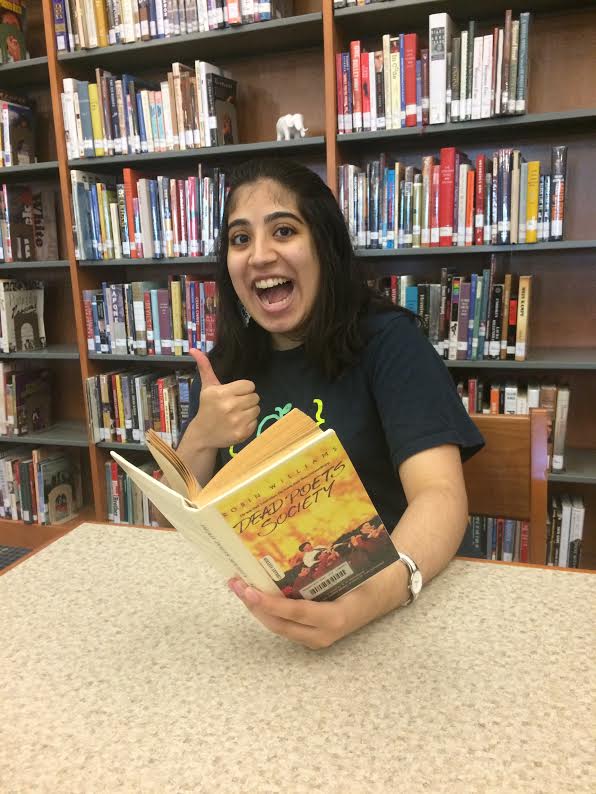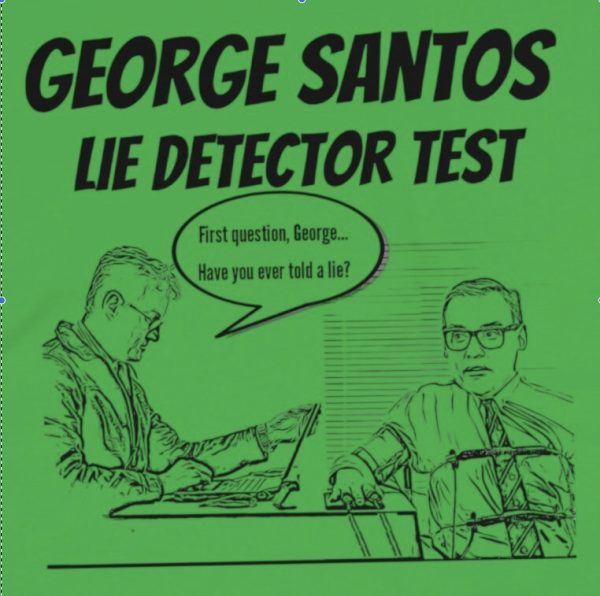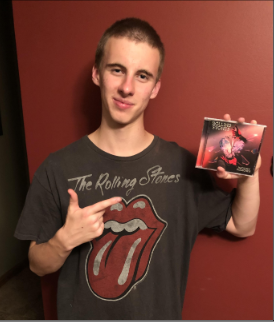The future, free will, and Dead Poets Society: thoughts on growing up
Payal Ahuja (‘17) gives a thumbs-up alongside her copy of Dead Poets Society. which she describes as “thought-provoking” and “coolio.”
Recently, I read a book called Dead Poets Society by NH Kleinbaum, based on the movie directed by Peter Weir. It tells the story of students at an elite boarding school in Vermont who feel inspired by their English teacher to do something more with their lives.
I perhaps could not have read this at a better time in my life, as I, along with the rest of the class of 2017, am soon going to graduate high school.
Some of us are off to college, some of us to the military. For many of us, this is our first time away from home; others of us have moved frequently enough for graduation to be more sweet than bitter. Either way, we are all moving on to a different path than the one we’re currently on.
This led me to think: what now? Of course, we’ll be doing something come September. But how do we know if it’s the best path for us? Is there such a thing as “the best path?” And what are we actually working toward?
I don’t mean this to sound angsty or preachy or make everyone have an existential crisis. In fact, I find these questions as exciting as I find them intimidating. For the first time, we possess a greater influence as to how our lives are going to shape up. We are no longer bound by the predictability of high school.
I am aware of how idealistic this sounds, but I’m also confident that Mr. Keating, the inspirational English teacher in Dead Poets Society, would wholly approve. See, the phrase he swears by is “carpe diem,” or “seize the day.”
His students, at first loyal to their routine and comfort zone, are unsure of exactly how to seize the day. However, they eventually realize that making their lives extraordinary doesn’t require grand gestures, but rather little steps toward a much larger goal.
So whether it’s wooing a girl, taking part in a play, or learning to be less shy, the students understand their role in the world and are confident in pursuing it.
An aspect of this book that stands out and makes it more meaningful than some other teen novels is that there is no happy ending. In fact, there really is no ending.
Events throughout the book evoke joy, anger, and heartbreak. The end of the book is beautiful because although not all issues are resolved, there is some hope that they will be eventually.
The students don’t magically solve their problems and live the rest of their lives happily ever after, but they do become mature and resilient enough to face their problems and stand up for what they believe.
So the ultimate lesson, fellow class of 2017, is that we are going to have infinitely more obstacles as we grow older and progress throughout our lives. But I’m confident that we have all grown up enough to overcome them and learn from them.
So, as Mr. Keating said: “Carpe diem, lads. Seize the day. Make your lives extraordinary.”










